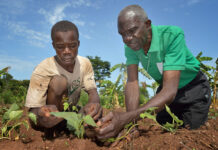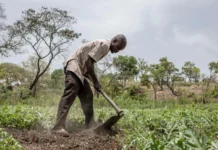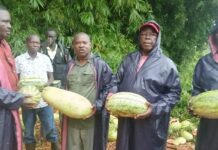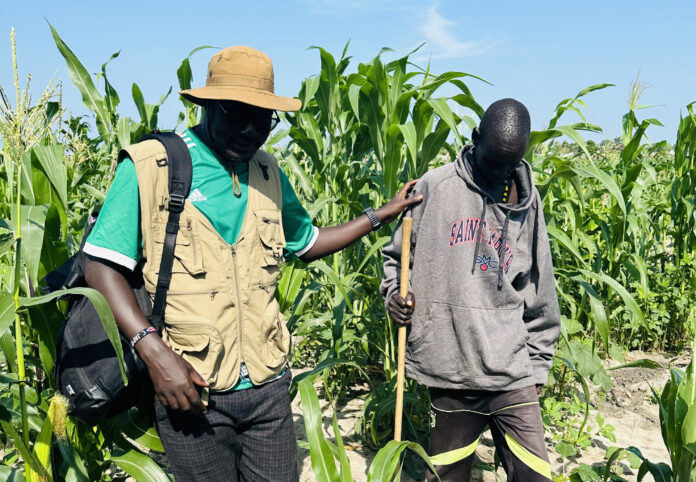
Chuol Jany
In the flood-prone farming community of Leer, South Sudan, local farmer Yak Gai Lel has emerged as a model of resilience and foresight. Faced with seasonal floods that often devastate crops, Lel has long advocated for early planting as a strategy to protect harvests from the destructive waters.
Lel advises his fellow farmers to begin planting in May, well before the peak of the rainy season. By doing so, crops can mature by July, just before the floods intensify. This method has allowed Lel to preserve his harvests year after year, despite unpredictable weather patterns.
In a recent interview, Lel emphasized the importance of timing for a successful harvest. “If we start early, we can harvest before the floods come,” he explained. His message to other farmers is clear: adopting early planting practices can safeguard livelihoods and ensure food security for their families.
Lel also warned against waiting for heavier rains later in the season, a common mistake that often leads to missed planting opportunities. “I don’t wait for the perfect rain. Once it comes in May, I start planting,” he said, urging farmers to seize the early rains. “If you ignore the first rains, you’ll have no crops,” he cautioned.
His proactive approach has not only protected his crops but also inspired others in Leer to rethink their farming schedules. Lee’s success is a testament to the importance of adapting to climate challenges.
However, his journey has not been without difficulties. Lel works tirelessly, often alone, to cultivate enough food to support his family and those who work with him. Despite his achievements, he acknowledges the limitations of working solo and calls for support from the government and other partners.
“I’ve been doing this on my own, hoping to show people how to work independently and encourage others to farm,” he said. He stressed the need for assistance, especially in acquiring seeds and machinery to expand his farm and increase production. “I sell my produce to support my family and those who help me,” he added.
Community Impact and Challenges
James C. Tech, a primary school teacher and farmer who mainly plants maize, groundnuts, and trees, shared his experience. He relies on manual watering during the dry season to ensure his crops grow. “When I’m not home, I direct my wife to water them every evening,” he explained. This consistency helps his crops and trees grow faster and stronger.
Despite his efforts, Tech faces challenges in the marketplace. “Sometimes people want to take things for free instead of paying,” he said. This affects his ability to profit from his labor, although he remains undeterred.
Meanwhile, vegetable farmer George Tut, known locally as the “vegetable man,” continues to farm year-round despite his challenges. A wounded veteran, Tut transitioned from the army to farming in 2008.
His three-fedan farm near the Gaar River in Leer County has supplied local markets with fresh fruits and vegetables for years. Despite lacking external support, Tut remains committed to his work and urges the government to provide farmers with equipment to enhance productivity.
Adapting to Floods
Roda Nyakoach Diu, a farmer-turned-vegetable vendor in Leer, shared her struggle with the consequences of flooding. She explained that many vegetables do not grow well during floods, forcing her to seek alternative seeds better suited to the conditions.
To protect her farm, Nyakoach built a dyke around her vegetable garden to keep floodwaters out, a labor-intensive effort she maintains until her crops are ready for harvest. “Government support, especially with tools to manage floods, is crucial,” she emphasized.
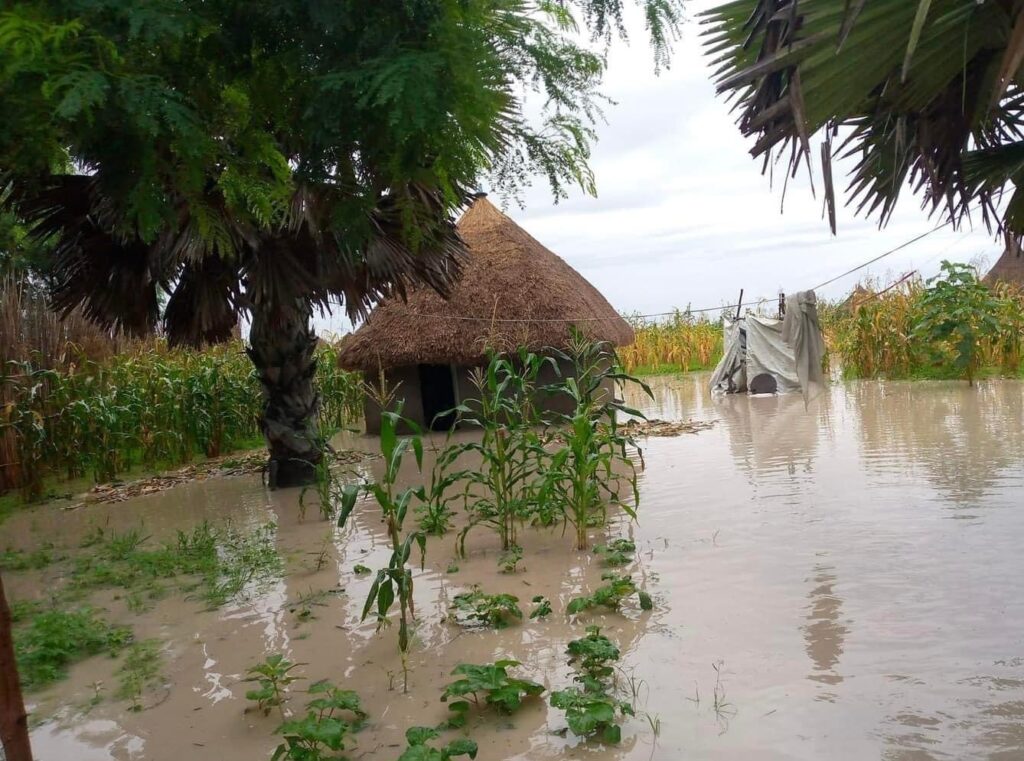
Government and Agricultural Support
Simon Liah Kuor, Director of Agriculture in Leer County, praised the resilience of local farmers who have been battling floods for over three years. He acknowledged that his department cannot provide direct support but is coordinating with NGOs and state authorities to offer assistance, including distributing seeds that can be planted during the flood season.
Kuor noted that traditional crops like maize and sorghum are no longer viable due to the flooding, and he recommended rice, sugarcane, and yam as alternatives. However, he expressed concern about the community’s unfamiliarity with these crops and stressed the need for training on how to cultivate them successfully.
With the right support and resources, Lel believes that more farmers in Leer can adopt early planting techniques and other strategies to reduce the impact of floods. His call to action resonates more urgently than ever, as climate change continues to threaten agricultural livelihoods.


